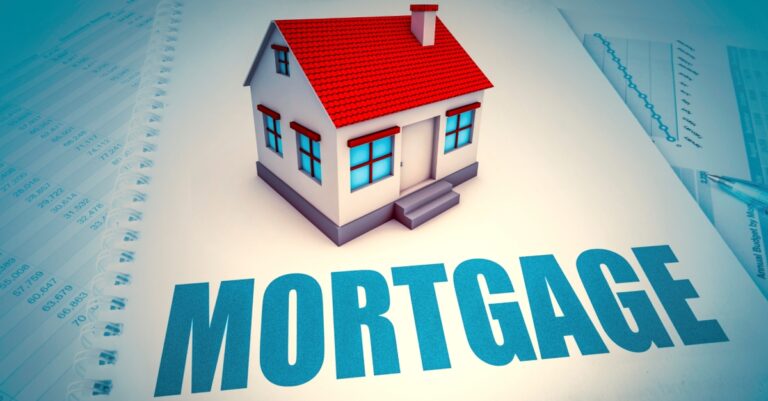Nigeria’s housing finance system remains shallow, with mortgage penetration among the lowest in Africa. While demand for home ownership is strong, structural challenges—from affordability to legal bottlenecks—continue to keep millions locked out of formal housing finance. A closer look at the issues reveals both the obstacles and pathways to reform.
Why Mortgages Remain Out of Reach
For most Nigerians, securing a mortgage is nearly impossible. Access to formal banking systems is limited, and many cannot meet requirements such as proof of stable income or formal employment. High interest rates—hovering between 18% and 27%—make repayments unaffordable, consuming well over 40% of an average household’s monthly income.
Legal barriers also complicate lending. Land titling remains cumbersome, while foreclosure laws are inefficient, discouraging banks from long-term exposure. Add to this a trust deficit in financial institutions and low awareness of mortgage opportunities, and the result is a market that leans heavily on informal, incremental homebuilding.
Pathways to Affordable Housing Finance
Bringing down interest rates and encouraging longer tenures requires deep structural reforms. Expanding access to long-term capital through secondary mortgage markets is one step forward. Strengthening the Nigeria Mortgage Refinance Company (NMRC) and similar institutions can give lenders liquidity to offer cheaper, extended mortgages.
Targeted government subsidies—such as Family Homes Fund initiatives—can reduce borrowing costs for low- and middle-income households. Stability in inflation and exchange rates is also critical, as macroeconomic volatility inflates borrowing costs. Finally, de-risking strategies such as mortgage insurance and government-backed guarantees would build lender confidence and support longer loan durations.
Affordability and the Nigerian Reality
At today’s rates, mortgages remain unrealistic for most. Even middle-income households earning ₦500,000 per month struggle to meet repayment obligations. This explains the popularity of self-financing, rent-to-own schemes, and informal construction. To bridge the affordability gap, Nigeria must explore scalable alternatives such as shared equity models, income-linked repayments, and hybrid rental systems.
Land Titling and Collateral Gaps
In urban informal settlements, land is often unregistered, making it impossible to use as collateral. Without clear ownership records, banks face high risks, as they cannot enforce repayment or foreclose on properties. Digitising and simplifying land registries would ease these challenges, allowing more properties to qualify for mortgages.
Policy Stability as a Catalyst
Long-term housing finance thrives in predictable environments. Nigeria’s frequent policy reversals—on FX, subsidies, or regulatory requirements—undermine confidence for lenders and investors alike. Establishing stable, transparent frameworks is key to building a sustainable mortgage ecosystem.
Learning from Global Models
International examples provide practical lessons. In the U.S., government guarantees under the Federal Housing Administration expand credit access, while secondary markets recycle funds for continuous lending. Countries with inclusive credit scoring—using data from rent, utilities, or mobile payments—have widened access for informal earners. Digitised land registries, subsidised lending for vulnerable groups, and integrated housing-finance strategies all stand out as proven interventions Nigeria could adapt.
Why Institutional Investors Stay Away
Despite pension reforms and PENCOM’s efforts, Nigeria’s mortgage sector remains unattractive to large investors. The absence of securitised mortgage assets, inefficient foreclosure systems, inconsistent property valuation, and weak credit data make long-term commitments risky. Without stronger legal frameworks, robust ratings, and securitisation structures, institutional capital will remain on the sidelines.
Tailored Mortgages for Youth and Informal Earners
Young people and informal workers make up the bulk of Nigeria’s population, yet they remain excluded from housing finance. Innovative loan structures—like step-up mortgages that grow with income, income-linked repayment models, and shared equity partnerships—can offer flexibility. Rent-to-own and micro-mortgages also reflect the realities of irregular earnings and incremental building practices common across the country.
The Untapped Potential of Cooperatives and Diaspora Funding
Cooperative housing and rent-to-own schemes could scale affordable housing but face challenges such as weak governance, poor legal frameworks, and low public trust. With digital platforms and stronger regulation, these models could be revitalised.
The diaspora, which remitted over $20 billion in 2023, remains cautious due to fraud, poor transparency, and unreliable land systems. Tailored diaspora mortgage products, backed by trusted institutions and digital platforms, could unlock significant inflows. Structured mortgage-backed securities, supported by guarantees, would further attract diaspora investors, mirroring successful models in Kenya and Morocco.
Technology as a Game-Changer
Blockchain offers a radical solution to land titling. By creating tamper-proof, transparent land records, it could eliminate fraud, accelerate loan processing, and foster trust. Pilots in progressive states could demonstrate viability, paving the way for nationwide adoption.
Building Trust through Consumer Protection
Many borrowers face exploitative contracts with hidden charges and unclear repayment terms. Establishing stronger consumer protection laws, standardised loan contracts, and independent mortgage ombudsman services would help restore confidence. Transparent pricing—through full disclosure of borrowing costs—would empower households to make informed decisions.
The Way Forward
Nigeria’s mortgage sector holds untapped potential, but real progress requires bold reforms. Expanding refinancing facilities, stabilising the economy, digitising land systems, and incentivising private capital are key priorities. Equally important is designing flexible mortgage products that reflect the realities of Nigeria’s young and largely informal workforce.
By drawing lessons from global best practices and leveraging technology, Nigeria can move toward a more inclusive, affordable, and sustainable housing finance ecosystem—one that shifts millions from informal building to formal homeownership.

